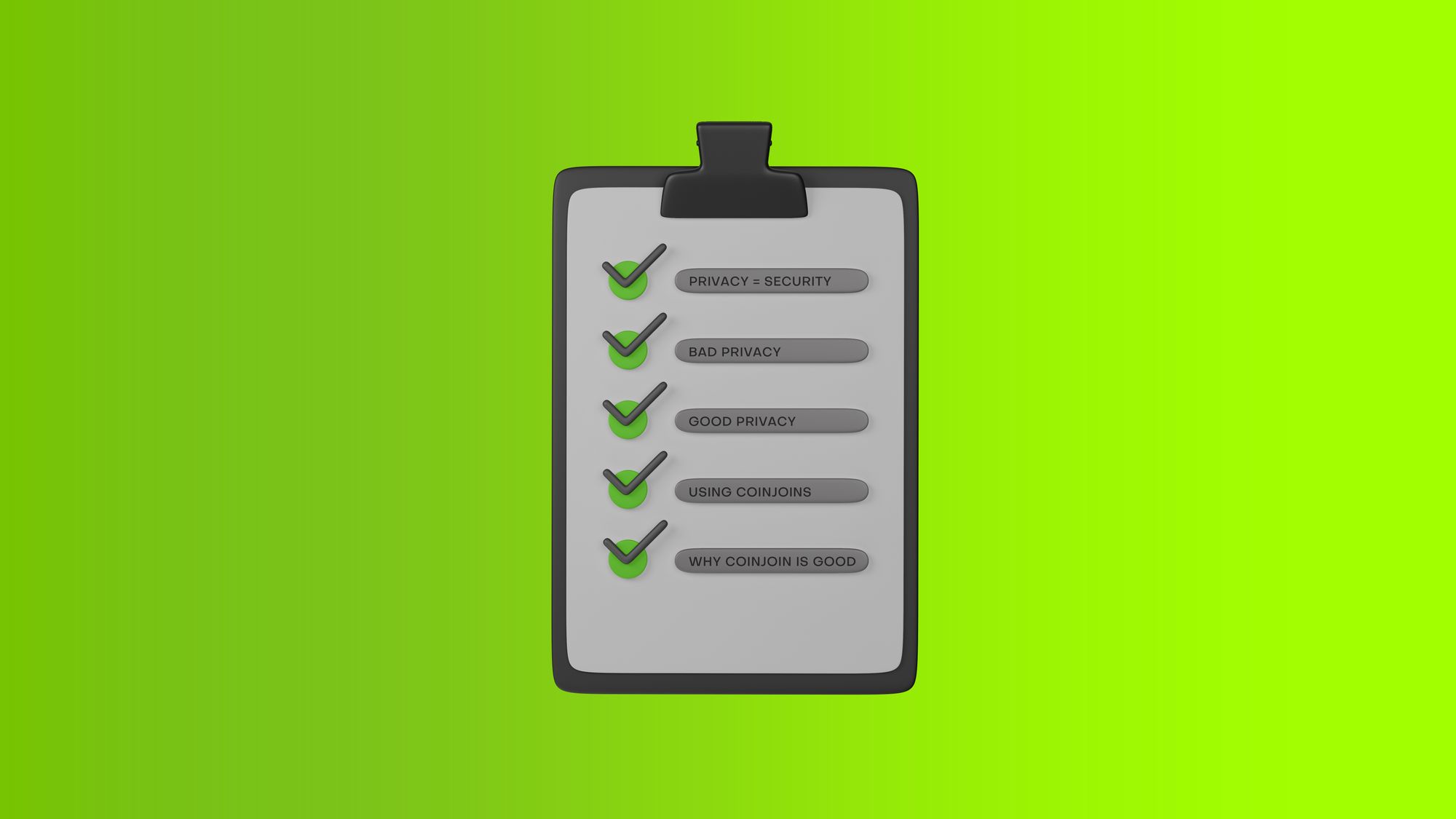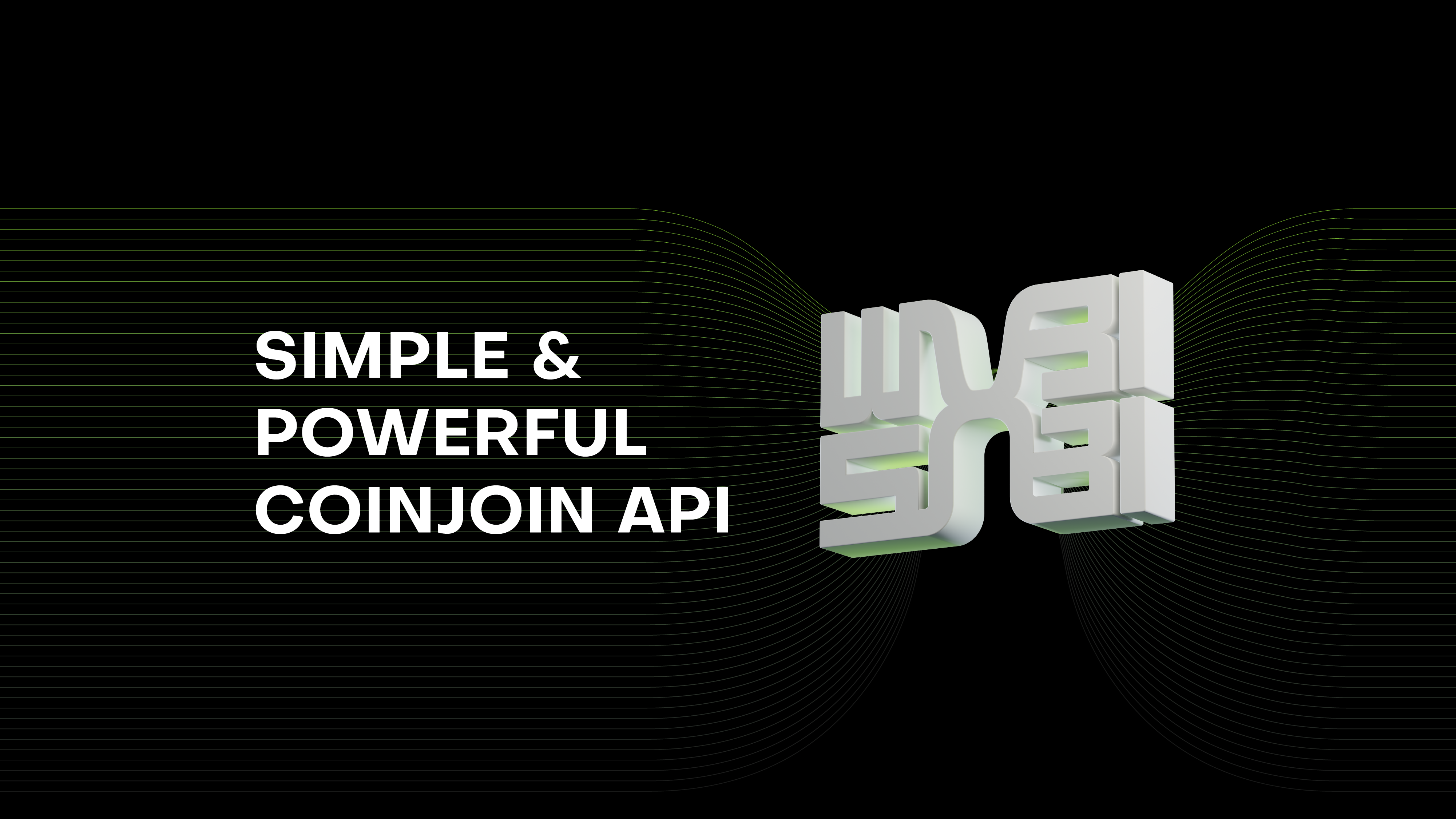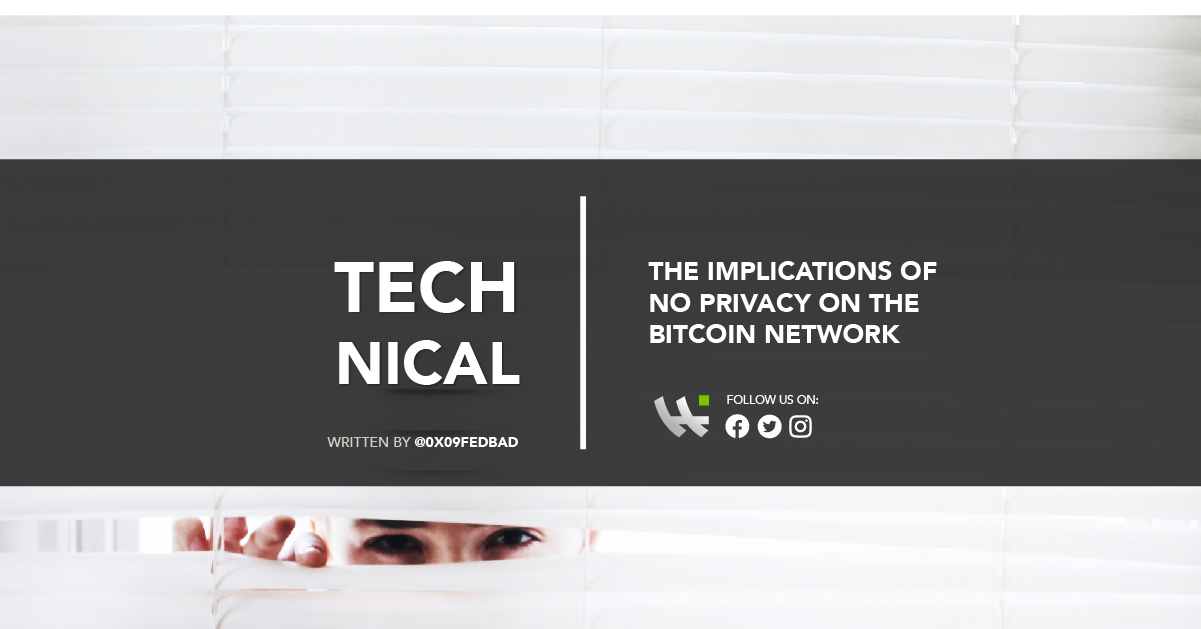The following article was created as a privacy guide for Cryptosteel‘s Operational Security manual, co-authored by folks from Trezor, Bitbox and Wasabi Wallet, which is available for free to download here.
You thought you had good privacy on bitcoin? Think again. In the digital age, privacy is hard to achieve. Privacy is a choice to not share certain information about oneself. As a digital monetary network, every bitcoin transaction is public and visible to all, so maintaining privacy on bitcoin can be a difficult task. The good news is that using the right tools, it has never been easier to reclaim your financial privacy using bitcoin. Why does privacy even matter? Does using bitcoin hurt or protect your financial privacy? What are the right tools to reclaim your privacy on bitcoin?
Good privacy is important for your personal security. Deciding who knows what about you is essential for your financial matters. Few people know how much money you have in your bank account. Your butcher doesn’t know that you went to buy fish instead of meat last week. Your employer doesn’t know which political parties or non-profit you support. It should be no different with bitcoin. And yet, bitcoin is a public network so more privacy precautions are warranted for users to be safe.
Privacy = Security
Let’s start at the beginning. You should generate your seed phrase on a bitcoin wallet that does not leak personal information. Use a private place that you know to be away from prying eyes when you create and backup your seed. A bitcoin wallet should be free and open source, with as many reviews from developers and users as possible so you can trust the integrity of the software. A bitcoin wallet should handle balance queries in a private way, without leaking your addresses and transaction history to third parties. Your wallet should also be integrated with an anonymity network such as Tor, which protects your IP address from being collected and used to track you down the line.
Bad Privacy
There are common mistakes that new bitcoiners (and sometimes even OGs!) make. Re-using addresses multiple times for different payments is the most basic error you can make. Doing so links seemingly unrelated past payments together, making it easy for an external observer to track your future payments.
Leaking all your wallet transaction details by trusting the bitcoin full node of a third party. To preserve your privacy, you should always try to run your own full node through Tor to protect your IP address, verifying your wallet balance and broadcasting transactions. There are other private ways of using a bitcoin wallet that may not include running a full node that we will cover later.
Using public block explorers to view and track personal transactions. This one sounds uncomfortable because we’ve all done it, and yet public block explorers may log your IP address as well as all the bitcoin addresses you have looked up, which could be an indication that they belong to your wallet.
Being vocal about your bitcoin holdings on your social media profiles. Posts of your bitcoin purchases and addresses to receive payments on online forums are scraped by chain analysis companies to cluster wallets in an attempt to identify entities such as individuals and companies.
Buying bitcoin on KYC exchanges. Unfortunately, many bitcoiners give up very sensitive personal information to buy bitcoin from regulated businesses, which may be shared publicly in data leaks, as has happened many times over in the past.
Good Privacy
Buying bitcoin peer-to-peer without KYC. Buying and selling bitcoin with peers using cash or even bank transfers is the best way to protect your privacy when you trade bitcoin.
Labeling addresses to keep track of your funds. Labels in your wallet are very helpful to get additional context on your transactions, whether incoming or outgoing, and should always be done as much as possible to keep track of how much information you reveal publicly when making a transaction.
Being aware of coin control and how it works. This goes in tandem with address labels. Usually when you send bitcoin, this will create a change output (back into your wallet) as the amount you send is larger than the one your receiver gets in the payment. That change is often referred to as “toxic” as it makes your future transactions easily traceable if you’re not careful how you use it.
Using network privacy tools like VPNs and the Tor anonymity network. Network-level privacy is beyond the realm of bitcoin but remains quite important to protect your personal security and avoid leaking your IP address, which can reveal your location.
Using Coinjoins
Most likely you have made some errors in the past. Bitcoin is often said to be unforgiving but there is a way to erase some of these mistakes. You can reclaim your privacy with collaborative bitcoin transactions called coinjoins. A coinjoin allows multiple users to participate in one single transaction together to hide their transaction history from the public. A coinjoin is a type of bitcoin transaction, which breaks the link between inputs and outputs, giving plausible deniability to participants. With a coinjoin, you can unlink some of your past transaction history from your current bitcoin holdings. Coinjoins will never delete the KYC data you have shared to third party exchanges, but it makes linking this data back to your holdings much harder.
Why Coinjoin Is Good
Coinjoins make bitcoin unspent transaction outputs (UTXOs) indistinguishable from each other. Being now fully interchangeable, coinjoin UTXOs are considered to be fungible as their different transaction histories are fully obfuscated from one another. Fungible UTXOs make bitcoin much easier to use as you now don’t have to think about which coin to spend in a payment. Without coinjoins, bitcoin UTXOs are not fungible, and without fungibility, censorship and seizure are possible. A merchant may refuse your coin based on its transaction history and an exchange may seize it if it is deemed risky.
Wasabi Wallet
As a free and open source bitcoin wallet, Wasabi Wallet has a built-in coinjoin feature, which is enabled by default. Wasabi Wallet is also compatible with most hardware wallet devices. Wasabi Wallet communicates over Tor to protect your IP address from being collected and uses block filters to query your wallet balance. Block filters are a bitcoin wallet network privacy improvement which do not require users to run their full nodes to get wallet balances, while not sharing information about their addresses with anyone else. Of course, if you want, you can always run your own full node and connect it to Wasabi.
The Wasabi coinjoin feature has at least 150 inputs in all its transactions for maximum privacy of its participants. A coinjoin coordinator fee of 0.3% is charged to all inputs that register for the Wasabi coordinator for the first time, except for inputs smaller than 1 million sats. All subsequent coinjoin rounds, also called remixes, are free of coordinator fees. All inputs pay bitcoin network fees.
Learn more about coinjoins on the documentation of Wasabi Wallet. As a reminder, the following article was created as a privacy guide for Cryptosteel‘s Operational Security manual, co-authored by folks from Trezor, Bitbox and Wasabi Wallet, which is available for free to download here.



